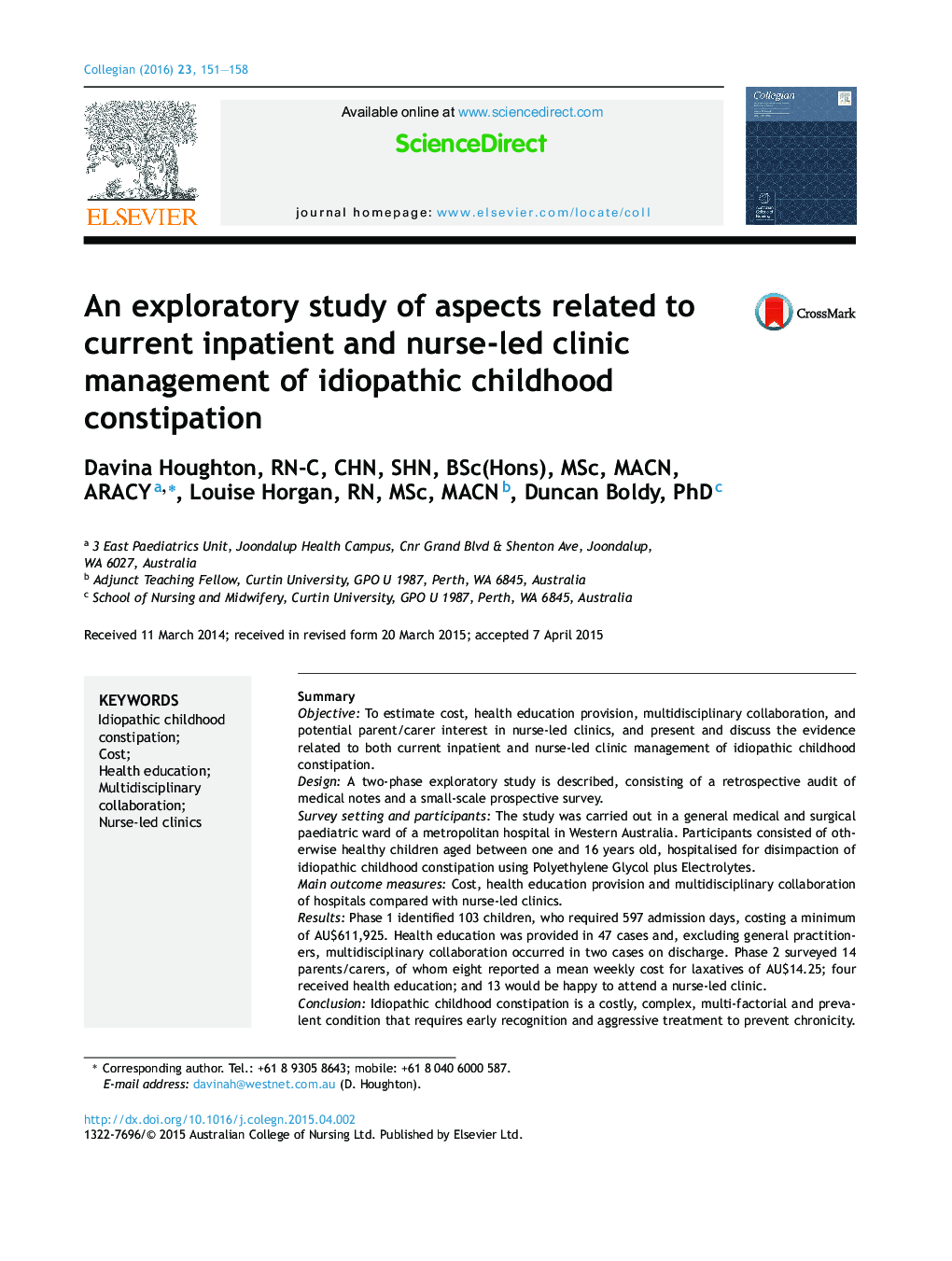| Article ID | Journal | Published Year | Pages | File Type |
|---|---|---|---|---|
| 2646069 | Collegian | 2016 | 8 Pages |
SummaryObjectiveTo estimate cost, health education provision, multidisciplinary collaboration, and potential parent/carer interest in nurse-led clinics, and present and discuss the evidence related to both current inpatient and nurse-led clinic management of idiopathic childhood constipation.DesignA two-phase exploratory study is described, consisting of a retrospective audit of medical notes and a small-scale prospective survey.Survey setting and participantsThe study was carried out in a general medical and surgical paediatric ward of a metropolitan hospital in Western Australia. Participants consisted of otherwise healthy children aged between one and 16 years old, hospitalised for disimpaction of idiopathic childhood constipation using Polyethylene Glycol plus Electrolytes.Main outcome measuresCost, health education provision and multidisciplinary collaboration of hospitals compared with nurse-led clinics.ResultsPhase 1 identified 103 children, who required 597 admission days, costing a minimum of AU$611,925. Health education was provided in 47 cases and, excluding general practitioners, multidisciplinary collaboration occurred in two cases on discharge. Phase 2 surveyed 14 parents/carers, of whom eight reported a mean weekly cost for laxatives of AU$14.25; four received health education; and 13 would be happy to attend a nurse-led clinic.ConclusionIdiopathic childhood constipation is a costly, complex, multi-factorial and prevalent condition that requires early recognition and aggressive treatment to prevent chronicity. Nurse-led clinics are cost-effective in terms of benefits relating to significant improvements in idiopathic childhood constipation management. This occurs predominantly through client-centred health education provision and multidisciplinary collaboration, which this exploratory study has found requires significant improvement within the hospital environment.
